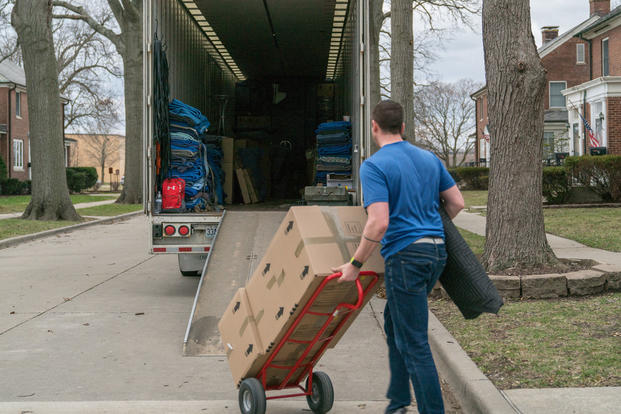Thousands of veterans using the post-9/11 GI Bill could see larger monthly housing allowance payments as the Department of Veterans Affairs backpedals changes to how payments are calculated in an attempt to dig out from a backlog sparked by antiquated technology.
That Basic Allowance for Housing bump, officials said in a Nov. 28 policy announcement, will be in addition to any back pay owed veteran students as a result of the backlog. And students who were inadvertently overpaid because of the technology problems will be permitted to keep the extra money.
Details on exactly how much extra students could receive monthly as a result of the new policy, or what reverting to the old system after months of attempts to implement the new payment structure will ultimately cost taxpayers, were not immediately available. The increase will run through Dec. 1, 2019, the policy states.
The students who will benefit most from the change -- and who were likely also impacted by payment delays early in the fall 2018 semester -- are those who started using their post-9/11 GI Bill benefit after Jan. 1 of this year.
That's because those students were subject to a series of housing rate changes ordered by Congress last year as part of the Forever GI Bill.
That law first required VA's Veterans Benefits Administration (VBA) to base housing payments on a student's physical address, not the location of the school's main campus. That meant students attending a school's satellite campus, for example, could receive lower payments than in the past.
A change was also ordered to the way BAH is calculated for GI Bill users to match how it's given to active-duty troops. Rather than the full BAH amount, Defense Department recipients have their allotments docked by five percent in an attempt by Congress to curb inflation. That means GI Bill users who first enrolled this year are by law to receive a lower GI Bill payment than students who started using the benefit prior to Jan. 1.
But the complexity of those new calculations required the VA to update its software, which in turn caused system problems and sparked a September claims backlog three times higher than normal for the start of the fall semester.
Wednesday's VA policy announcement puts a hold on all housing payment changes in an attempt to give the agency time to update its systems before the new Dec. 1, 2019, deadline.
"Redesigning the way VBA calculates Post-9/11 GI Bill housing rates during a busy academic season was like flying a plane while building it, and that was unfair and frustrating to veterans and taxpayers. That's why we are resetting our implementation of the law for the next year to ensure we get the technology and formula right to put veterans first," VA Secretary Robert Wilkie said in a statement. "In the meantime, beneficiaries receiving Post-9/11 GI Bill housing allowances will be paid at the DoD BAH rate, which in many cases will be equal to or higher than their current payment."
Veterans advocates said they are pleased the VA has recognized and is addressing the problem.
"Student Veterans of America applauds the VA for acknowledging its changes to GI Bill payments were made in a way that was unfair and frustrating to student veterans, and SVA welcomes the VA's efforts to make it right and especially their commitment to remain in communication to ensure everyone knows what to expect," Jared Lyon, president and CEO of Student Veterans of America, said in a statement.
VA officials said the payment backlog is currently at a level the agency considers normal after sitting three times higher than usual in early September. As of Nov. 16, about 74,000 claims are sitting in the VA's queue, representing all kinds of GI Bill payments, including new enrollments and program changes, officials said.
Of those, about 63,400 are less than 30 days old, while about 11,000 are older. Currently, the average claim is processed within 16 days, about two days longer than the VA's 14-day goal for all but new claims.
-- Amy Bushatz can be reached at amy.bushatz@military.com.
















